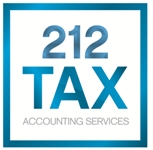When filing taxes, individual taxpayers can itemize, or list out, certain deductions if doing this would be more than their standard deduction. Schedule A is the federal tax form that itemized deductions are reported on. The most common types of itemized deductions are state and local income taxes, mortgage interest, real estate taxes, charitable contributions, and unreimbursed job expenses.
The Schedule A is among the most common type of tax forms that generate tax audits, or examinations, of an individuals’ tax returns. This is because more often than not, taxpayers
and/or their tax preparers, try to claim itemized deductions that cannot be substantiated or proven. If the IRS and/or state tax agency feels that this is the case, they will send you a
notice requesting an examination of your tax returns and the related evidence behind the deductions that you are claiming.
Robert is a 212 Tax client who traveled a lot for his job as a salesperson of medical equipment. As an employee who traveled frequently, he had a lot of unreimbursed travel and meal
expenses that he claimed on his Schedule A when filing his taxes.
Typically, to properly claim those expenses on a tax return, the taxpayer must have a written letter from his or her employer describing how these expenses are job-related but not
reimbursed. Robert deducted these expenses on his Schedule A despite not having the necessary letter from his employer, and then received a notice from the I.R.S. requesting an
in-person meeting at the I.R.S. office in downtown Manhattan.
The team at 212 Tax was able to save Robert thousands of dollars by negotiating with the auditor to lower the tax assessment, even though Robert was unable to obtain the required
letter from his employer. These audits go to show the importance of proper record keeping, particularly when filing deductions on a Schedule A. For more assistance filing your own taxes properly or with an audit, contact 212 Tax today for a consultation.


